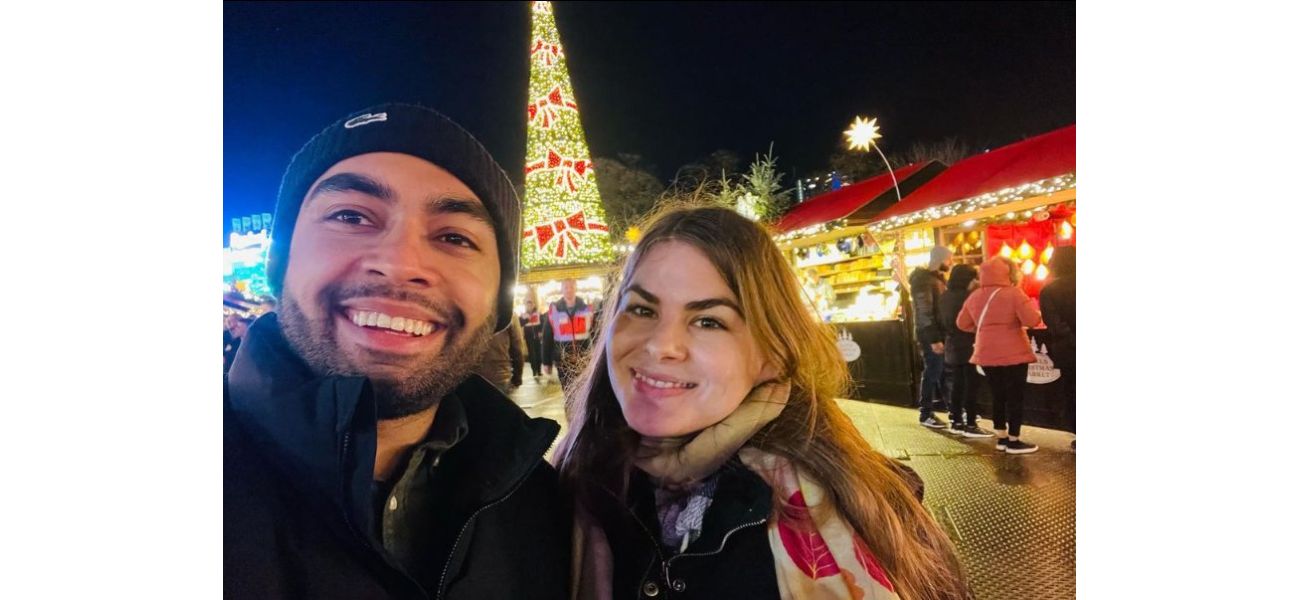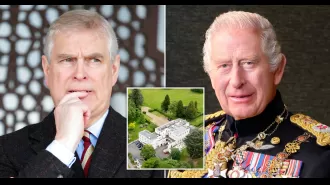I spent a lot of money to stay in the UK, but it might end up being wasted.
I am drained in all aspects - financially, mentally, and emotionally.
September 2nd 2024.

I woke up on a cold, grey morning in May, feeling a sense of longing for the familiarity of home. Little did I know that my life was about to change drastically with just one email.
As I checked my inbox, I noticed an email with the subject line: ‘FLR Application Update’. My heart started pounding with nervous anticipation as I opened it. However, the words that followed left me in shock and disbelief.
The email stated that my application and human rights claim, which I had made back in February 2024, had been refused. The words hit me like a hammer, causing the world around me to blur. This rejection meant that I was on the verge of losing everything I had fought so hard for since arriving in the UK.
I had come to this country seeking religious freedom, the right to openly express my love for my Christian partner, and safety from persecution. I had built a life here, piece by piece, and it was all at risk now. It was disheartening to realize that the system, which was supposed to protect human rights, was actually tearing apart families and destroying lives.
My journey to the UK began in Saudi Arabia, where I was born and raised. In December 2009, I arrived in the UK on a student visa to pursue a one-year foundation course in accountancy. Initially, I stayed with my aunt in Reading before moving to London to rent a place of my own.
My visa was valid until April 2011, and I had planned to return home after completing my studies. However, my exit/re-entry visa, which allowed residents to leave and return to Saudi Arabia without losing their residency status, was set to expire in May 2011. This meant that I would be unable to return to Saudi Arabia after my UK visa expired, and I would be considered an illegal immigrant.
In an attempt to avoid this situation, I sought the help of an immigration advisor in March 2011. Despite some doubts about his vague promises, I trusted him and provided him with my passport, previous visas, bank statements, and institution documents. Unfortunately, I later found out that he was unregistered and had failed to submit my application. He also refused to return my documents until I paid him an additional fee, leaving me without any other options.
As a result, I became an overstayer in May 2011. My life in the UK became a constant struggle for survival. I took on cash-in-hand jobs, often being taken advantage of due to my status. I relied on the kindness of friends for a place to stay, but when that wasn't possible, I had to resort to sleeping in cheap hostels or even abandoned vans. The constant stress and uncertainty of my situation weighed heavily on me, and I felt isolated and homesick without my family by my side.
Desperate for help, I reached out to various solicitors, but most were unwilling to take on my case without substantial fees. As an overstayer, I did not qualify for pro-bono work or legal aid, and I felt like I had no way out.
The Brexit referendum in 2016 only added to my struggles, as anti-immigrant sentiments grew stronger. But in 2019, I met Maria through a dating app. We bonded over our shared love for food, movies, and deep conversations about life. What truly connected us was our ability to dream together and create aspirations that we had both missed out on before.
I woke up on a cold, grey morning in May with a heavy heart. As I checked my emails, I received one that would change my life forever. The subject line read: "FLR Application Update," and my heart raced as I clicked to open it. However, what I read next left me in shock and disbelief.
The email stated that my application and human rights claim, which I had submitted in February 2024, had been refused. The words hit me like a ton of bricks, and my surroundings seemed to blur as I tried to process the news. This rejection meant that everything I had worked so hard for since arriving in the UK was in jeopardy - my religious freedom, my right to openly love my Christian partner, and my safety from persecution. It was also a threat to the life I had built in a country that prides itself on upholding human rights.
As someone who was born and raised in Saudi Arabia, I arrived in the UK in 2009 on a student visa. My plan was to complete a one-year foundation course in accountancy in London before returning home. However, I was also open to the idea of gaining international experience by working in the UK for a few years before going back to Saudi Arabia. Unfortunately, my exit/re-entry visa was due to expire in May 2011, which would leave me unable to go back to Saudi Arabia after my UK visa expired. This put me in a vulnerable position, as Saudi regulations impose a three-year ban on re-entry if you do not have a final exit visa.
In an attempt to resolve this issue before it became a problem, I sought the help of an immigration advisor in March 2011. Despite my initial doubts about his vague promises, I was desperate for a solution and decided to trust him. However, I later found out that he was unregistered and had not submitted my application. He also kept my documents, making it impossible for me to seek help from someone else. To make matters worse, he demanded an additional fee of £300 to return my passport, leaving me with no choice but to comply. As a result, I missed my opportunity to file for an extension and became an overstayer in May 2011.
Life in the UK became a daily struggle, and my main focus was survival. I took on cash-in-hand jobs that were often exploitative and offered little to no pay. I relied on the generosity of friends for a place to stay, but when that was not an option, I had to resort to sleeping in cheap hostels or even abandoned vans. I felt alone and homesick, with most of my family still in Saudi Arabia.
Desperate for a solution, I reached out to various solicitors in London, but most of them refused to take on my case without substantial fees. My lack of finances severely limited my options, and it seemed like all doors were closing on me. The Brexit referendum in 2016 only added to the anti-immigrant sentiment I faced daily and made my situation even more complicated.
However, in 2019, I met Maria through a dating app. We bonded over our shared love for food, movies, and deep conversations about life. What truly connected us was our ability to dream together and create aspirations that we had missed out on before. Finally, I found someone who understood and supported me, but my immigration status continued to hang over us like a dark cloud. It was a constant reminder of the uncertain future that lay ahead.
As I checked my inbox, I noticed an email with the subject line: ‘FLR Application Update’. My heart started pounding with nervous anticipation as I opened it. However, the words that followed left me in shock and disbelief.
The email stated that my application and human rights claim, which I had made back in February 2024, had been refused. The words hit me like a hammer, causing the world around me to blur. This rejection meant that I was on the verge of losing everything I had fought so hard for since arriving in the UK.
I had come to this country seeking religious freedom, the right to openly express my love for my Christian partner, and safety from persecution. I had built a life here, piece by piece, and it was all at risk now. It was disheartening to realize that the system, which was supposed to protect human rights, was actually tearing apart families and destroying lives.
My journey to the UK began in Saudi Arabia, where I was born and raised. In December 2009, I arrived in the UK on a student visa to pursue a one-year foundation course in accountancy. Initially, I stayed with my aunt in Reading before moving to London to rent a place of my own.
My visa was valid until April 2011, and I had planned to return home after completing my studies. However, my exit/re-entry visa, which allowed residents to leave and return to Saudi Arabia without losing their residency status, was set to expire in May 2011. This meant that I would be unable to return to Saudi Arabia after my UK visa expired, and I would be considered an illegal immigrant.
In an attempt to avoid this situation, I sought the help of an immigration advisor in March 2011. Despite some doubts about his vague promises, I trusted him and provided him with my passport, previous visas, bank statements, and institution documents. Unfortunately, I later found out that he was unregistered and had failed to submit my application. He also refused to return my documents until I paid him an additional fee, leaving me without any other options.
As a result, I became an overstayer in May 2011. My life in the UK became a constant struggle for survival. I took on cash-in-hand jobs, often being taken advantage of due to my status. I relied on the kindness of friends for a place to stay, but when that wasn't possible, I had to resort to sleeping in cheap hostels or even abandoned vans. The constant stress and uncertainty of my situation weighed heavily on me, and I felt isolated and homesick without my family by my side.
Desperate for help, I reached out to various solicitors, but most were unwilling to take on my case without substantial fees. As an overstayer, I did not qualify for pro-bono work or legal aid, and I felt like I had no way out.
The Brexit referendum in 2016 only added to my struggles, as anti-immigrant sentiments grew stronger. But in 2019, I met Maria through a dating app. We bonded over our shared love for food, movies, and deep conversations about life. What truly connected us was our ability to dream together and create aspirations that we had both missed out on before.
I woke up on a cold, grey morning in May with a heavy heart. As I checked my emails, I received one that would change my life forever. The subject line read: "FLR Application Update," and my heart raced as I clicked to open it. However, what I read next left me in shock and disbelief.
The email stated that my application and human rights claim, which I had submitted in February 2024, had been refused. The words hit me like a ton of bricks, and my surroundings seemed to blur as I tried to process the news. This rejection meant that everything I had worked so hard for since arriving in the UK was in jeopardy - my religious freedom, my right to openly love my Christian partner, and my safety from persecution. It was also a threat to the life I had built in a country that prides itself on upholding human rights.
As someone who was born and raised in Saudi Arabia, I arrived in the UK in 2009 on a student visa. My plan was to complete a one-year foundation course in accountancy in London before returning home. However, I was also open to the idea of gaining international experience by working in the UK for a few years before going back to Saudi Arabia. Unfortunately, my exit/re-entry visa was due to expire in May 2011, which would leave me unable to go back to Saudi Arabia after my UK visa expired. This put me in a vulnerable position, as Saudi regulations impose a three-year ban on re-entry if you do not have a final exit visa.
In an attempt to resolve this issue before it became a problem, I sought the help of an immigration advisor in March 2011. Despite my initial doubts about his vague promises, I was desperate for a solution and decided to trust him. However, I later found out that he was unregistered and had not submitted my application. He also kept my documents, making it impossible for me to seek help from someone else. To make matters worse, he demanded an additional fee of £300 to return my passport, leaving me with no choice but to comply. As a result, I missed my opportunity to file for an extension and became an overstayer in May 2011.
Life in the UK became a daily struggle, and my main focus was survival. I took on cash-in-hand jobs that were often exploitative and offered little to no pay. I relied on the generosity of friends for a place to stay, but when that was not an option, I had to resort to sleeping in cheap hostels or even abandoned vans. I felt alone and homesick, with most of my family still in Saudi Arabia.
Desperate for a solution, I reached out to various solicitors in London, but most of them refused to take on my case without substantial fees. My lack of finances severely limited my options, and it seemed like all doors were closing on me. The Brexit referendum in 2016 only added to the anti-immigrant sentiment I faced daily and made my situation even more complicated.
However, in 2019, I met Maria through a dating app. We bonded over our shared love for food, movies, and deep conversations about life. What truly connected us was our ability to dream together and create aspirations that we had missed out on before. Finally, I found someone who understood and supported me, but my immigration status continued to hang over us like a dark cloud. It was a constant reminder of the uncertain future that lay ahead.
[This article has been trending online recently and has been generated with AI. Your feed is customized.]
[Generative AI is experimental.]
0
0
Submit Comment





